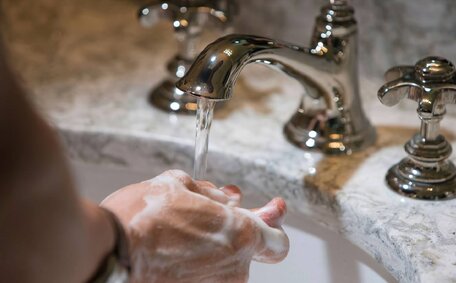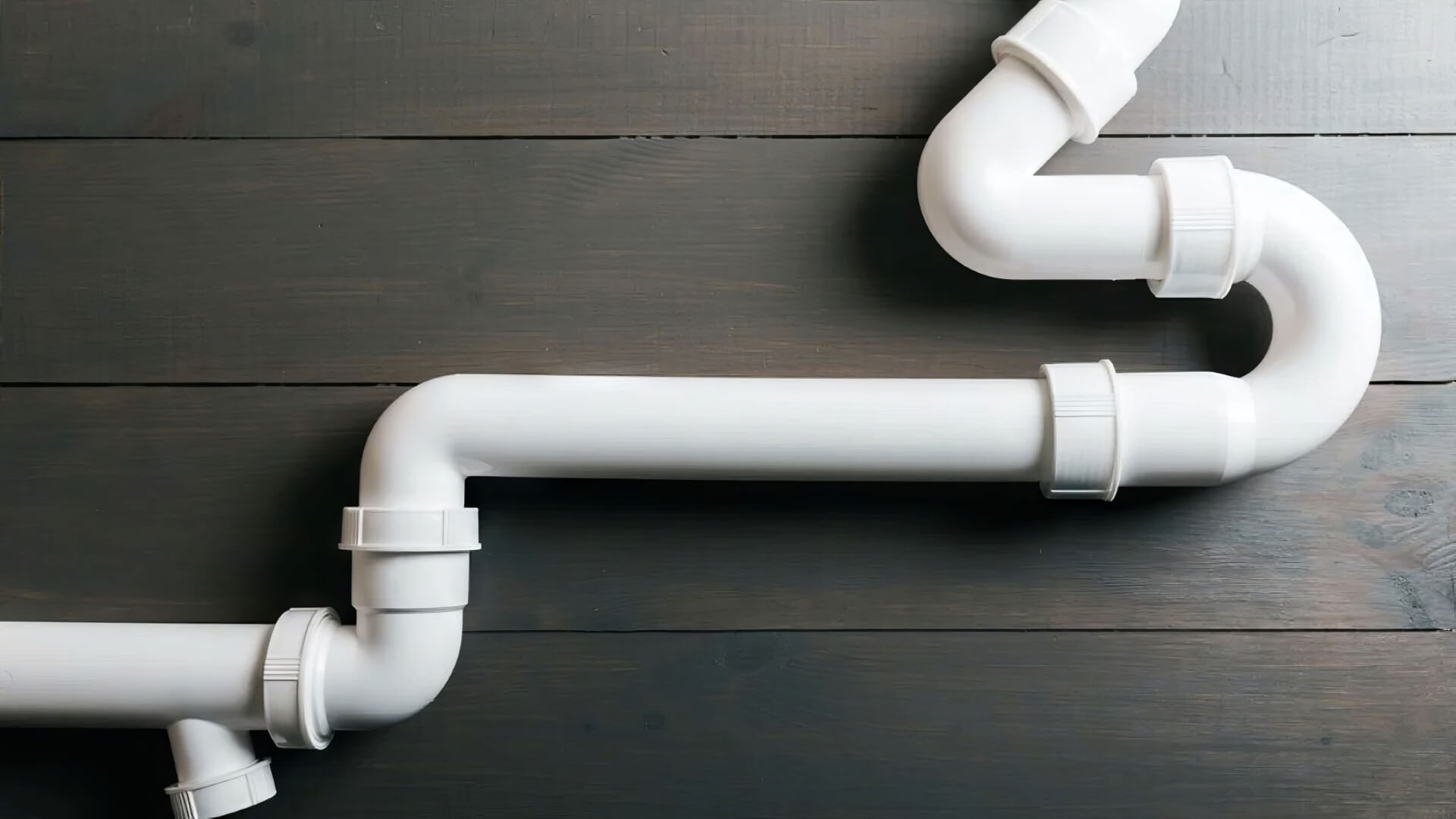An Introduction to Smart Water Leak Detection Systems
Water leaks may seem innocuous at first, but over time they can cause extensive property damage and waste millions of gallons of water. Thankfully, advancements in 2 smart home water technology are transforming traditional leak detection methods.
Equipped with IoT technology, smart water leak detection systems, when situated throughout the property, can detect leaks in real-time and immediately notify building owners and managers, allowing prompt action to prevent damage.
Smart water leak detection systems, using AI to monitor water consumption around the clock, can discern typical water usage patterns. Should any unusual water flow occur, the system quickly shuts off the water supply, forestalling flooding and minimising water loss, while supplying essential data for detecting leaks.
Studies show water leakages constitute nearly 10% of domestic water use, resulting in substantial daily water loss. The EPA estimates proactive leak monitoring could save approximately 10,000 gallons and $100 annually.
By harnessing water distribution networks data with predictive analytics, smart leak detection provides actionable insights to better inform water managers in their decisions using effective management systems. As global concerns on water climate escalate, putting water security at risk, intelligent water systems become crucial for sustainably monitoring our invaluable resource.
How Smart Water Sensors and IoT Devices Detect Leaks
Water leak detector systems utilise Internet of Things (IoT) sensors and devices to monitor water usage and identify leaks in real time. Here’s how they work:
- Water flow sensors are installed at key points along the plumbing system to track how much water is being used. These sensors can detect changes in water pressure and flow rates.
- The sensor data is analysed by smart software that uses algorithms to establish normal water usage patterns.
- When an unusual water flow is detected, the system swiftly informs homeowners via mobile apps, emails or text messages.
- Flood sensors can trigger valves to autonomously shut off the water supply and minimise flooding damage.
- Some solutions also use moisture sensors placed near hot water heaters and under sinks to detect water leaks and overflow.
- Advanced systems with machine learning and AI continually optimise leak detection capabilities in problematic water pipes.
Smart systems offer real-time monitoring and instant notifications for water anomalies, combining sensors and analytics for early detection to prevent pipe bursts and property damage.
Types of Smart Water Leak Detectors
There are several types of smart water leak detectors available that can identify leaks in real time:
Smart Water Shutoff Valves
These automated valves with sophisticated connectivity can shut off water supply instantly when a wifi water sensor detects a leak. Popular options include the Flo by Moen and Phyn Plus Smart Water Assistant.
Smart Water Sensors
Water leak sensors like the Honeywell Smart Water Leak and Flood Detector placed near appliances and pipes detect water and moisture to spot leaks through their sensitive water leak sensor technology. Many sensors also monitor temperature humidity levels.
Flow Monitoring Metres
The smart water monitor, akin to flow meters, continually track water usage and signal unusual spikes that might indicate a leak. The Flume Smart Water System attaches to your existing water meter, providing accurate tracking of water use.
Pipe Burst Detectors
These thermal imaging devices, employing fiber optic technology, can discern the subtle differences between air in pipes and the sound of gushing water. The Teraloop Pipe Burst Detection System is one example.
Acknowledging that water leaks can affect both whole home and specific areas, water utilities consider such factors when choosing a leak detector. In a smart city like Singapore, smart water sensors have reduced non-revenue water loss from 5% to 3%. Ultimately, these devices can help save money and serve as a shield for your property from damage.
Understanding Smart Water Shutoff Valves
Equipped with a smart water sensor, smart water shutoff valves are intelligent devices that detect leaks and automatically guard the water supply by shutting off when necessary. These automated valves are connected to smart water leak detection systems and help prevent catastrophic damage from burst pipes and floods.
The operation is as follows:
- Smart water monitor sensors are dedicated to checking plumbing for leaks and communicate with the shutoff valve.
- When a leak detected signal arrives, the system prompts the valve to immediately shut off the main water line.
- Once a leak is confirmed, the automated valve shuts off water instantly to prevent any further damage until repairs can be effected.
Smart building shutoff valves provide 24/7 monitoring and react swiftly to leaks, reducing water waste and preventing flooding to protect properties from extensive damage.
These systems provide homeowners with a sense of security against leaks, while the convenience of remotely shutting off water via smartphone enhances user experience.
Likewise, commercial buildings and apartment complexes benefit from reduced insurance claims and maintenance costs. Overall, smart water shutoff valves are a wise investment for saving money and avoiding disaster.
Benefits of AI and Machine Learning for Leak Detection
AI and machine learning revolutionise water technologies by enhancing the precision and predictive abilities of leak detection in distribution systems.
Here are some key benefits these technologies offer:
- Continuous learning - Machine learning algorithms become more intelligent over time by analysing data patterns to refine leak detection.
- Predictive analytics - Historical data helps AI predict potential leakage issues and prevent them proactively.
- Reduced false alarms - AI sifts out anomalies not related to leaks, minimising disruptive false alarms.
- Faster identification - AI can process vast amounts of data to detect leaks quicker than manual monitoring.
- Exact location - Algorithms can precisely pinpoint the origin of leaks down to a specific pipe or appliance.
- Informed decisions - AI provides actionable insights to guide effective leak prevention and water infrastructure upgrades.
- Cost savings - Early leak detection means significantly lower repair costs and water loss.
- Enhanced automation - AI enables self-monitoring systems that act independently to detect and prevent leaks.
In essence, AI augments human capabilities to slash water wastage and damage through 24/7 smart water management. Machine learning bolsters leak detection accuracy as algorithms self-improve from experience over time.
Early Notification Through Monitoring and Alerts
Early water leak notification through continuous monitoring and alert systems provides critical advantages for homeowners and businesses. Smart water leak detectors with real-time alert capabilities can inform users immediately via smartphone notifications or computer alerts when a leak is detected.
Receiving immediate leak alerts allows users to quickly address and repair leaks, conserving water and avoiding significant damage. Following EPA guidance, proactive monitoring could save over 10,000 gallons per year for leaks above 90 gallons daily.
Speed is crucial for effective leak detection and response.
Beyond water savings, early notification prevents the high costs of repairing water damage if a leak is left unaddressed. Continuous leak monitoring instills peace of mind, ensuring even minor leaks will be caught early before pipe bursts lead to flooding.
By enabling a rapid response, smart alerts allow users to mitigate the severity of any leak event.
Overall, real-time monitoring and alert systems are a prudent investment for any home or business owner concerned about conserving water, saving on utility bills, and protecting their property from leak damage.
The few minutes it takes to receive and act on a smart water leak alert could end up saving thousands in your plumbing repairs and wasted water over time.
Automated Prevention of Catastrophic Water Damage
Smart water leak detection goes beyond simply identifying leaks - it can also automatically take action to prevent disastrous water damage. Through instantaneous shutoff capabilities, these intelligent systems help safeguard homes and businesses.
The Flo by Moen system cuts off the water supply using WiFi valves once a leak is detected, preventing flooding – proudly claiming a response time of under 30 seconds in tests.
Meanwhile, The Phyn Plus smart sensor not only monitors leaks but can also engage the water shut off by instantly notifying homeowners and closing its integrated shutoff valve. Case studies show Phyn halted a real burst pipe in a California home inside 90 seconds, preventing the release of over 22,000 gallons.
Such capabilities reduce the risk of severe property damage and high repair costs. An insurance study found that US homeowners typically spend $10,000 on flooding incidents, a cost significantly mitigated by the near-instant response of smart leak technology.
Integration of real-time sensors, intuitive software, and actuators allows smart water systems to autonomously detect threats and respond decisively, offering reassurance that even serious leaks will be handled swiftly.
Case Studies of Smart Leak Detection Success
Smart leak detection systems can help prove their worth through real-world success stories across residential, commercial and municipal applications.
The city of Online adopted Flo by Moen’s Smart Water Shutoff system in a 60-unit condominium complex. After a dishwasher hose burst, Flo detected the leak within minutes and shut off the main water supply, preventing over $150,000 in damage.
Meanwhile, the Pure Technologies SmartBall platform assisted New York in identifying breaks each year and prevented the loss of over 200 million gallons of drinking water. SmartBall survey data enabled teams to find leaks for proactive repairs.
Phyn Plus prevented catastrophic damage at a California residential property by detecting a major leak and closing its integrated valve within 90 seconds. Over 22,000 gallons of water was saved.
From pinpointing underground pipe leaks to automatically addressing appliance malfunctions, smart leak tech has demonstrated tanglible benefits across diverse applications. With the world facing pressing water scarcity, intelligent water management is an indispensable tool for sustainability.
Implementing Your Own Smart Leak Detection System
With water leaks costing homeowners 28 billion annually in repairs and wasted water, implementing a smart leak detection system can provide peace of mind and prevent disastrous damage.
DIY enthusiasts can install devices like the Honeywell Home Water Leak and Flood Detector to receive mobile alerts when water is present in vulnerable areas. Strategically place these wireless sensors near water heaters, under sinks, washing machines, and other leak-prone spots.
Alternatively, the Phyn Plus offers a combined real-time monitoring and automatic water shutoff valve, ensuring around-the-clock leak protection with smartphone remote control.
To ensure seamless operation, follow instructions to integrate sensors, software, and valves when installing a leak system, and enable push notifications for instant leak alerts.
While smart leak tech is readily available for DIY installation, complex whole home systems benefit from professional installation. Consult with qualified plumbers like Lalor Park Plumbing to map out an automated leak detection strategy tailored to your needs and budget.
Smart water management and maintenance fortify property protection, yet consulting professionals for advice and timely repairs when leaks occur is advisable.
- Coverage area - Determine whether you need monitoring for the entire property or just high-risk spots like water heaters.
- Detection methods - Options range from basic moisture sensors to advanced machine learning-driven systems.
- Connectivity - WiFi-enabled devices allow remote monitoring and control via smartphones.
Consider your risk level, convenience, and budget for optimal leak detection. Comprehensive all-in-one systems may be costly, whereas self-installed sensors provide budget-friendly targeted monitoring.
Coverage area - Determine whether you need monitoring for the entire property or just high-risk spots like water heaters.Detection methods - Options range from basic moisture sensors to advanced machine learning-driven systems.Connectivity - WiFi-enabled devices allow remote monitoring and control via smartphones.Improper DIY installations may result in ineffective leak detection due to suboptimal sensor placement. Professional installation guarantees optimal setup and calibration.
While feasible for simpler systems, complex, full-property systems usually require the precision of professional plumbers for assured protection. Lalor Park Plumbing can ensure correct installation.






